How do you picture Gene Kelly? Most likely in his effervescent screen persona, either as the burly ex-GI of An American in Paris, or as the hoofer without a raincoat in Singin’ in the Rain.
You’re less likely to picture him peering through a movie camera lens. Yet of the 47 films Kelly made over his 50-year career, he directed 11 of them and was choreographer on 27. His legacy, he believed, was what he delivered behind the camera, not in front of it.
He also attained the distinction, in 1960, of being the first American commissioned to choreograph for the Paris Opera Ballet (George Balanchine and Jerome Robbins may have been busy at the time). The result, entitled Pas de Dieux, was set to the lush textures and soaring melodies of George Gershwin’s Piano Concerto in F, itself a novelty for the orchestra of the Palais Garnier which, rather late in the day, was getting its first taste of jazz.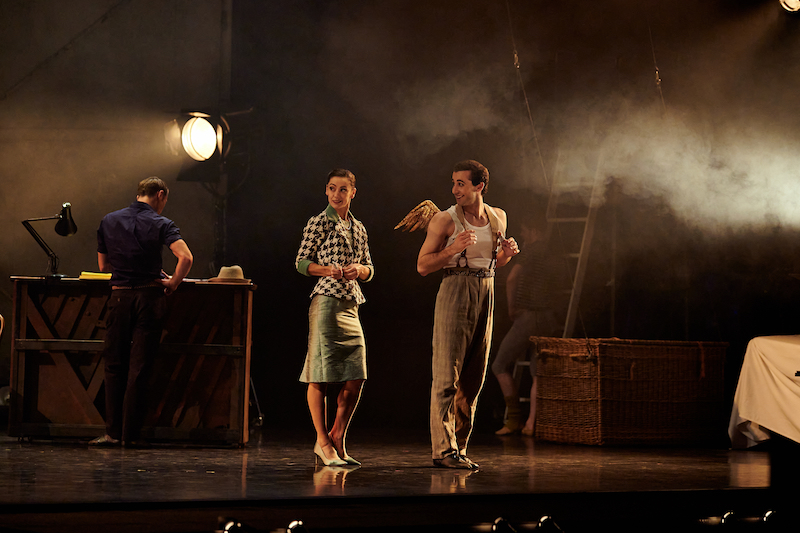 Fast forward 60 years and Gene’s ballet has a new set of wings thanks to a chance meeting in Paris between Kelly’s widow, Patricia Ward Kelly, and Christopher Hampson, artistic director of Scottish Ballet. The result, Starstruck, toured theatre stages in Scotland last summer and has now emerged as a feature-length film, recreating Kelly’s choreography and following his private notes on direction and camerawork. The work is now twice the length of the original, thanks to the addition of a substantial preface choreographed by Hampson. This has the effect of embedding Pas de Dieux – and its rather arch story about a marital tiff between Zeus and Aphrodite – within the context of a working ballet company (pictured above).
Fast forward 60 years and Gene’s ballet has a new set of wings thanks to a chance meeting in Paris between Kelly’s widow, Patricia Ward Kelly, and Christopher Hampson, artistic director of Scottish Ballet. The result, Starstruck, toured theatre stages in Scotland last summer and has now emerged as a feature-length film, recreating Kelly’s choreography and following his private notes on direction and camerawork. The work is now twice the length of the original, thanks to the addition of a substantial preface choreographed by Hampson. This has the effect of embedding Pas de Dieux – and its rather arch story about a marital tiff between Zeus and Aphrodite – within the context of a working ballet company (pictured above).
Scottish has form in ballet-to-screen and from the moment we see the second AD call the principals from their dressing rooms, this project doesn’t put a foot wrong. The entire dance action takes place within one big studio, but Lez Brotherston’s designs – taking their flavour from the originals by André François – keep things fluid by flooding the walls with projections – floating clouds, seascapes, roofscapes, the facade of the Palais Garnier. There’s even a flight in a balloon.
Hampson’s pre-ballet is hugely enjoyable. Using mainly classical steps and the orchestrated sequence of Chopin piano music familiar from Les Sylphides, he establishes the principal characters within the hierarchy of the company, and a strong generic sense of “this is ballet”, to contrast with the jazz vibe of the Gene Kelly section. Tall, blond Christopher Harrison quickly stamps his authority on the studio as the Choreographer with an extended, dreamy solo – half warm-up, half wistful contemplation – to show his classical chops. The Company Pianist (dancer Bruno Micchiardi) arrives and immediately identifies as the Donald O'Connor to Harrison's Don Lockwood. Goofing about, he pulls off the stepping-over-a-chair gag to make sure we have our Singin' in the Rain receptors switched on. Sophie Martin is the guest ballerina – glamorous, aloof – who keeps the other dancers at arm's length except when it suits her to wreak romantic havoc.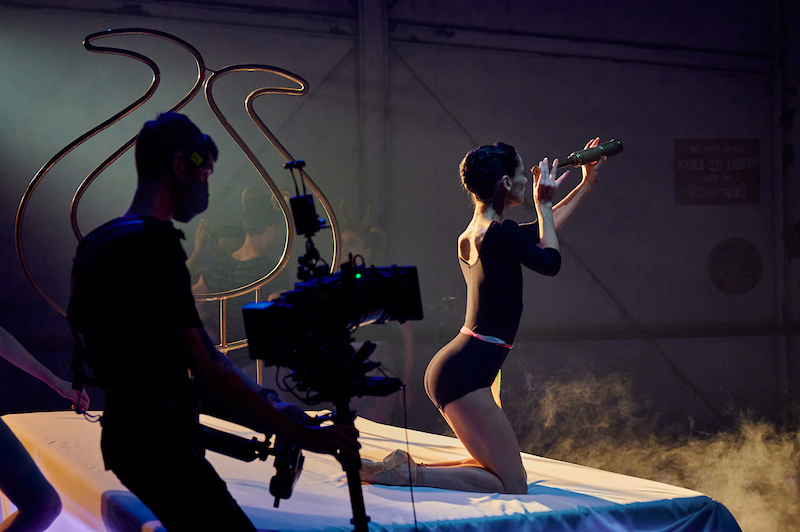 In a scene reminiscent of The Red Shoes, we see the ballet company arrive and prepare for class, chat, squabble, jostle for position, and work hard learning new steps meted out to them by the Choreographer (some of these being jazz steps that we'll see more of in the second half). The control of the comic and dramatic elements in a continuous stream of dance is impressive.
In a scene reminiscent of The Red Shoes, we see the ballet company arrive and prepare for class, chat, squabble, jostle for position, and work hard learning new steps meted out to them by the Choreographer (some of these being jazz steps that we'll see more of in the second half). The control of the comic and dramatic elements in a continuous stream of dance is impressive.
Gene Kelly did have some classical training but the joy of his choreography (and the challenge to Scottish Ballet) is the way he throws elements of tap and jazz dance in with ballet. In a single phrase you can find a "chocolat", a "Susie Q" and a Charleston step, a shuffle ball and a single buffalo. He was a multi-linguist in every sense.
The scenario of Pas de Dieux is pretty odd. Aphrodite, tired of being married to Zeus and spying on mortals, takes off with Eros for the French Riviera to have some fun. Zeus gets angry, sends in thunder and lightning, fights off the competition and gets back the girl. This is made more palatable by the backgrounding of the added first half. Harrison has great nobility as Zeus, Martin (pictured above) is a coquettish Aphrodite, and Micchiardi's sidekick Eros shoots all the arrows but of course never gets a girl. The chorus, as usual, is merely required to be indefatigable.
After the premiere of Kelly's ballet in Paris in 1960 someone called it "a leggy, sexy, modern ballet that blew the dust off the chandeliers at the Palais Garnier". The fact that it now looks like a leggy, sexy, period ballet rather increases its charm for us now. Kudos to Christopher Hampson and Scottish Ballet for giving it a second life, and to director Oscar Sansom for making such a good film.




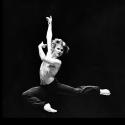
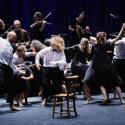
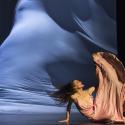
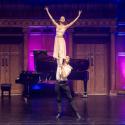
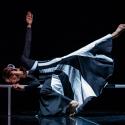
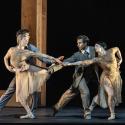
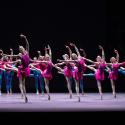
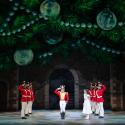
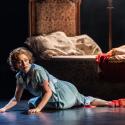

Add comment